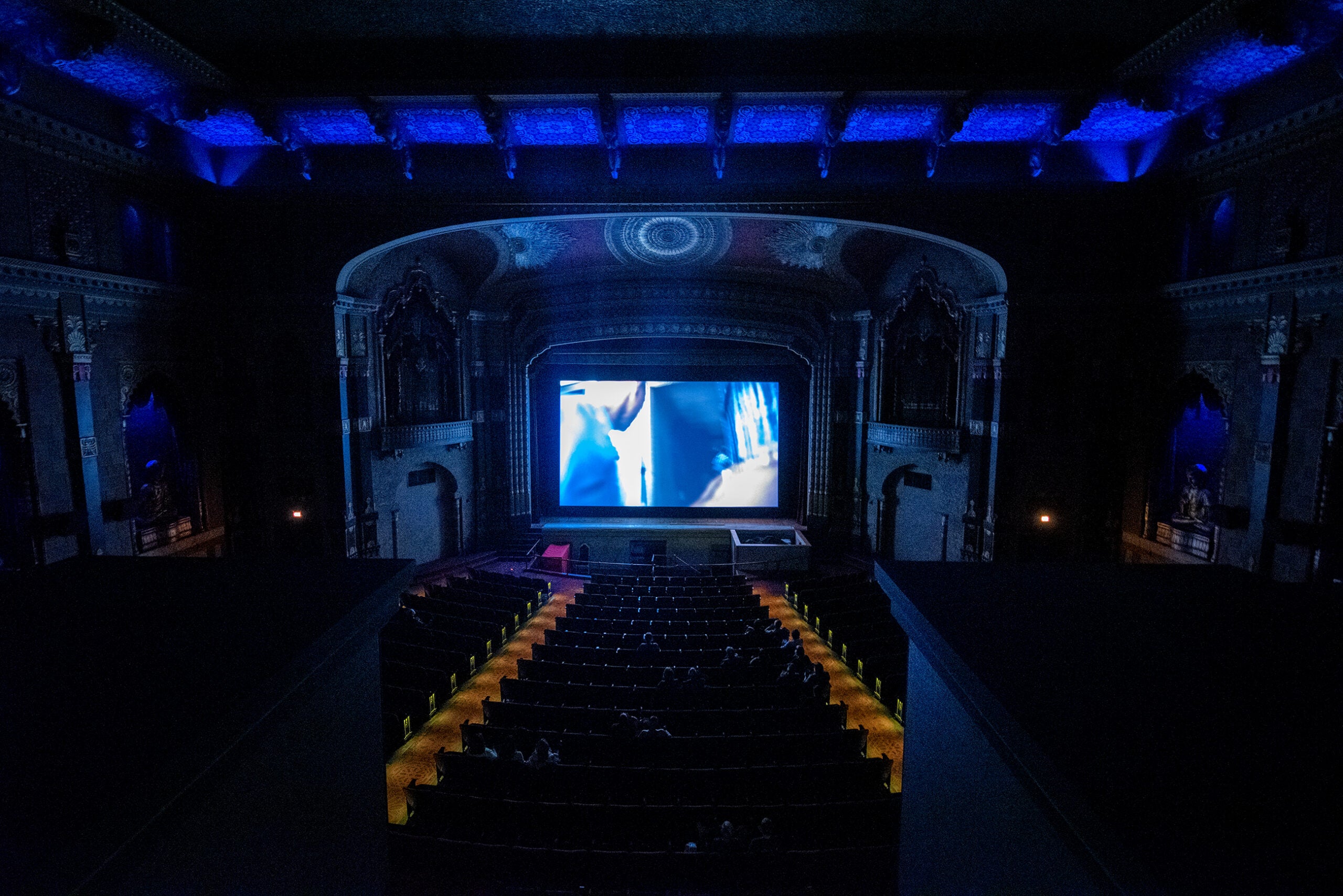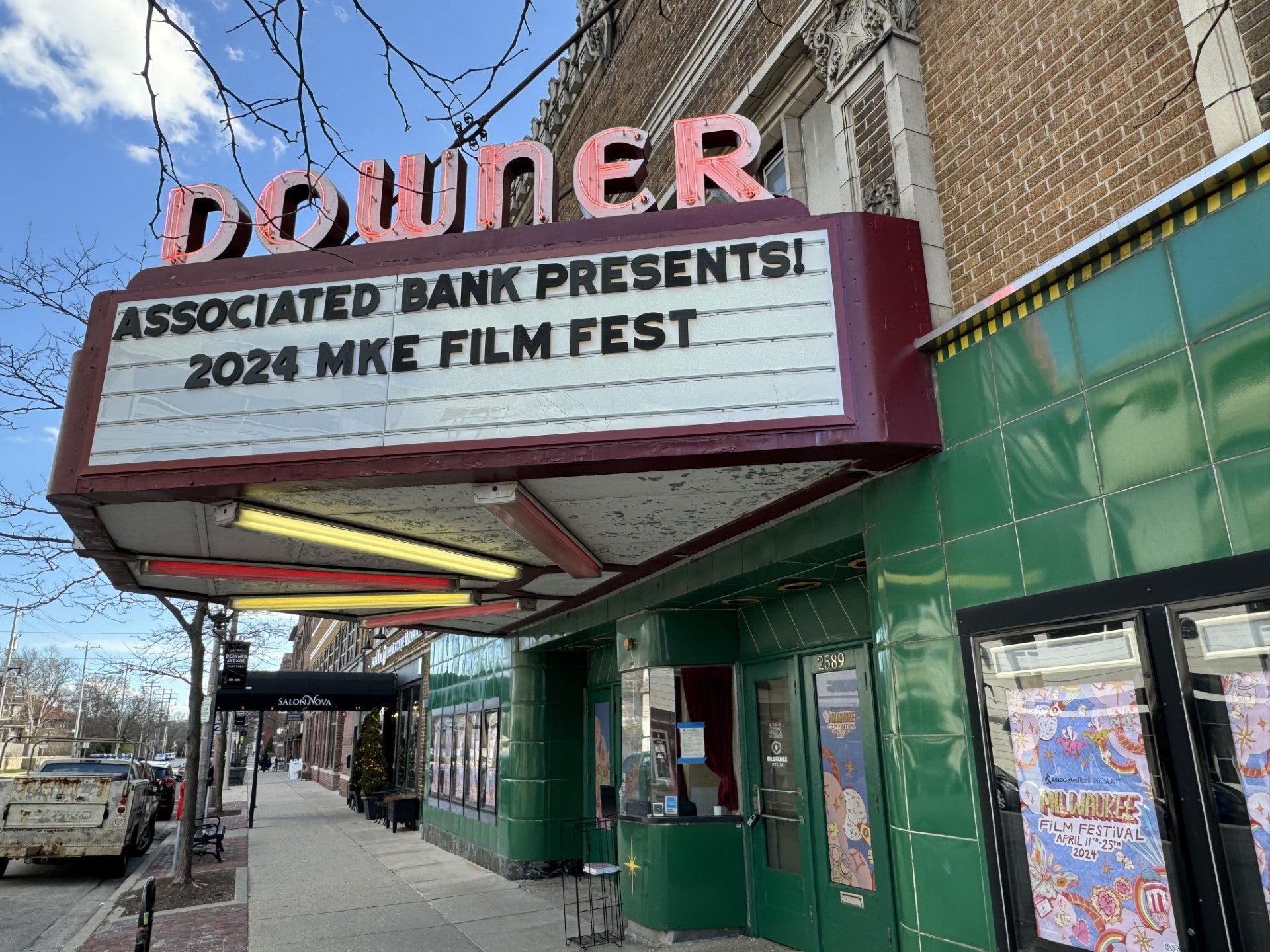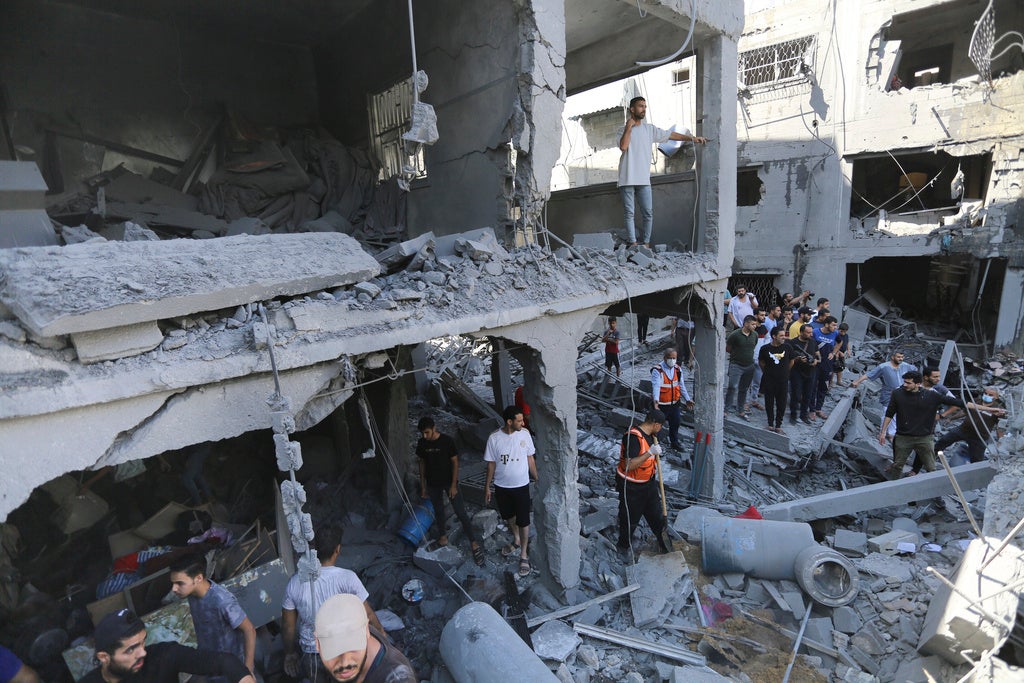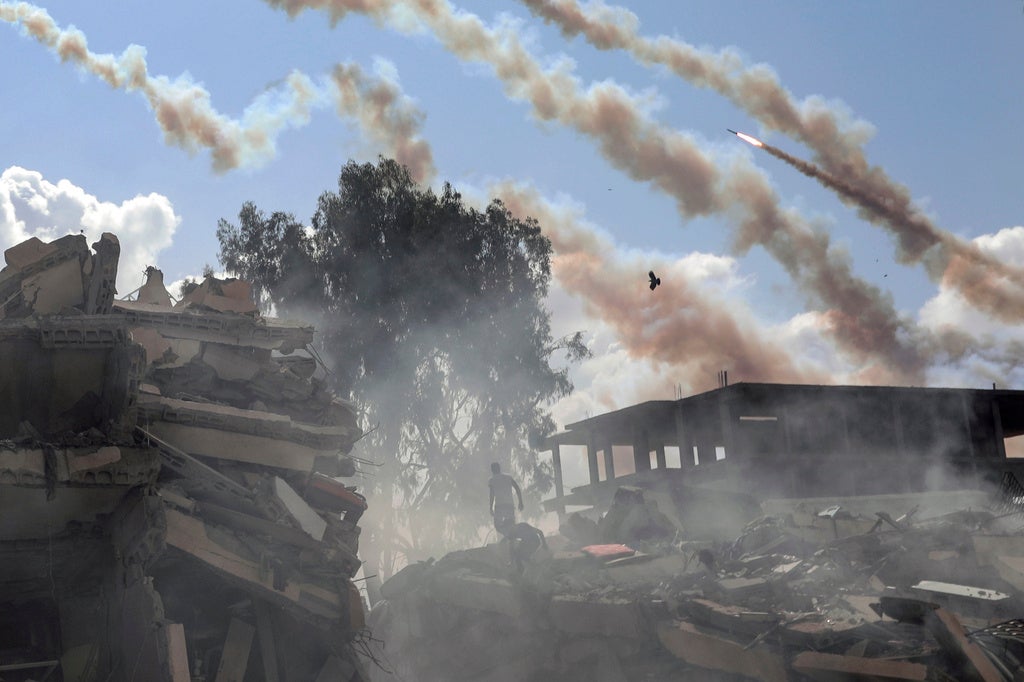Every fall, Milwaukee’s Muslim and Jewish communities hold film festivals showcasing movies centered on their cultures.
This year, the Milwaukee Muslim Film Festival and the Milwaukee Jewish Film Festival are coinciding with the outbreak of the Israel-Hamas war and the strain and fear it is creating in both communities.
Milwaukee Muslim Film Festival
Stay informed on the latest news
Sign up for WPR’s email newsletter.
Janan Najeeb, founder and CEO of the Milwaukee Muslim Women’s Coalition, said there is a “cloud” over the Milwaukee Muslim Film Festival, but her team is focused on promoting values of compassion, respect and coexistence.
“By watching these films, by hearing these stories, we hope that people get another perspective and realize Muslims, of course, are just like everybody else. It’s sort of sad that you have to keep saying that to people. Why do we have to explain ourselves?” Najeeb said.
The eighth annual Milwaukee Muslim Film Festival is presented by the Milwaukee Muslim Women’s Coalition. All the films will play at The Oriental Theatre.
The festival runs Oct. 19 through Oct. 22. There will be eight films and a screening of “Wisconsin Life: The Wisconsin Muslim Project.” All are centered around Islamic culture and take place in Wisconsin and abroad, including a documentary focused on Gaza.
Milwaukee Jewish Film Festival
Miryam Rosenzweig, president and CEO of the Milwaukee Jewish Federation, said Jewish tradition is rooted in storytelling. She said movies can take events that seem far away and bring them into context.
“If people go to film festivals and come out of it and are more curious than they walked in, then we’re successful. If you can solve the issues in the Middle East in a tweet, you probably are not having a serious conversation,” Rosenzweig said.
The 26th annual Milwaukee Jewish Film Festival runs Oct. 15 through 29. It is hosted by the The Harry & Rose Samson Family Jewish Community Center. Movies are played at the Marcus North Shore Cinema in Mequon.
The festival included five films set in the United States and around the world focusing on Jewish culture, traditions and history. Although the in-person screenings concluded this week, four of the five movies are available to stream on Eventive.
‘A little moment of respite’
Dates for both events were set well in advance. But both women said the timing is fitting, and that reaction to keeping the festivals on the calendar despite the crisis has been positive.
Rosenzweig described the Milwaukee Jewish Film Festival as nourishment.
“To have two hours to walk into a theater and hear a new story and focus all your attention — it’s like a little slice of therapy. It’s a little moment of respite,” Rosenzweig said.
Najeed said this is the time to build understanding.
“It gives people a chance to talk and discuss their feelings and also discuss questions they might have,” she said.
Cara Ogburn, artistic director of Milwaukee Film, said some people might feel a heightened reason to want to learn, listen and think from others during this time of conflict.
Ogburn said film is “really opening up that possibility for someone to be transported from a cinema seat in Milwaukee to another place, to someone else’s life and experience, find human connection, but also sometimes difference that can be illuminating in that way.”
Julie Lookatch, spokesperson for the Jewish Community Center, said sharing stories is the best way to understand each other.
“It’s really important that we continue to tell stories at all times and continue to offer programs for our community, our whole Milwaukee community, to gather together,” Lookatch said.
Originally, there was a dark comedy set in Gaza scheduled to play at the Milwaukee Muslim Film Festival. Najeeb said that the movie was no longer appropriate.
It was replaced with “Gaza Fights For Freedom,” a documentary about the Great March of Return Demonstrations in the region in 2018. The film includes testimony from Palestinians about weekly rallies and consequential conflict.
“Considering that there’s very little information that is being presented of the Palestinian perspective and the situation of all 2.2 million civilians in Gaza, we felt that it was important to go ahead and show this film,” Najeeb said.
Rosenzweig said America’s right to free speech means everyone can have different narratives.
“We live in a country that celebrates the ability to create art, to craft a message — and that we are allowed to do it, and we’re allowed to do it freely,” Rosenzweig said.
Wisconsin Public Radio, © Copyright 2025, Board of Regents of the University of Wisconsin System and Wisconsin Educational Communications Board.





